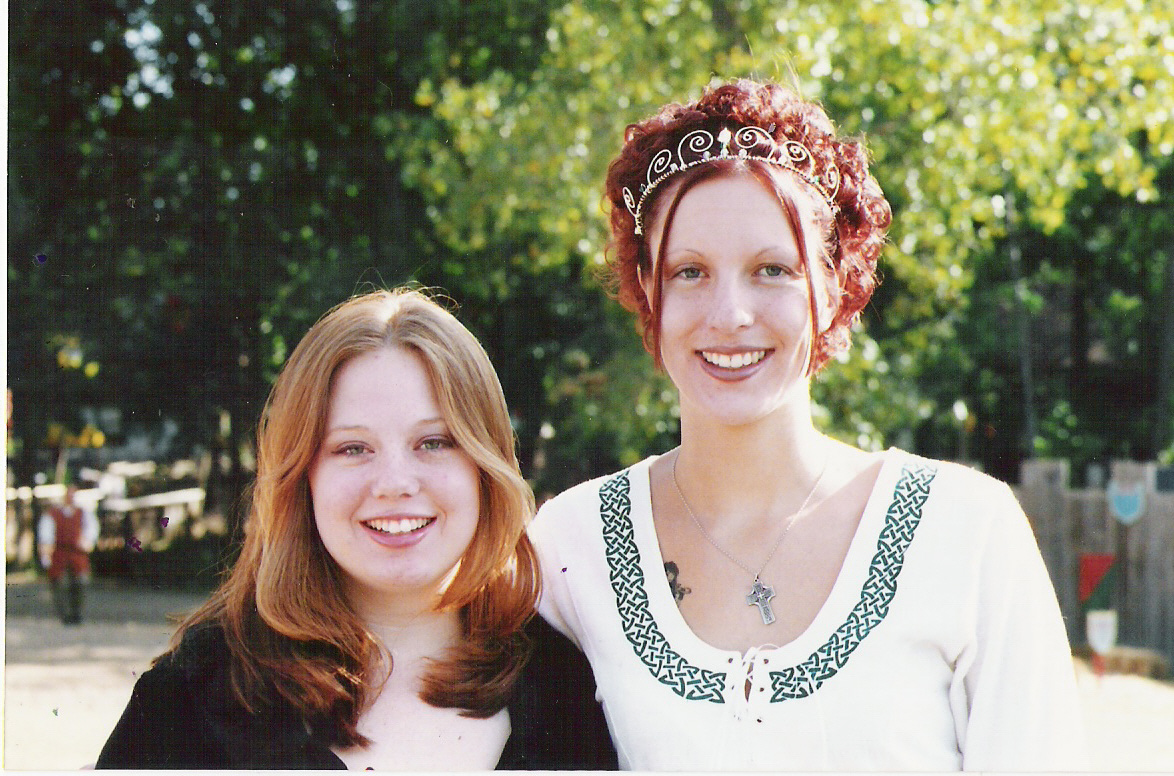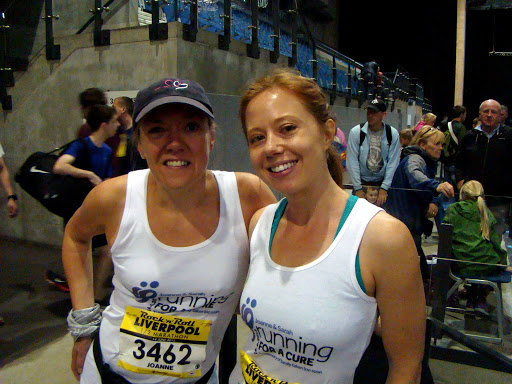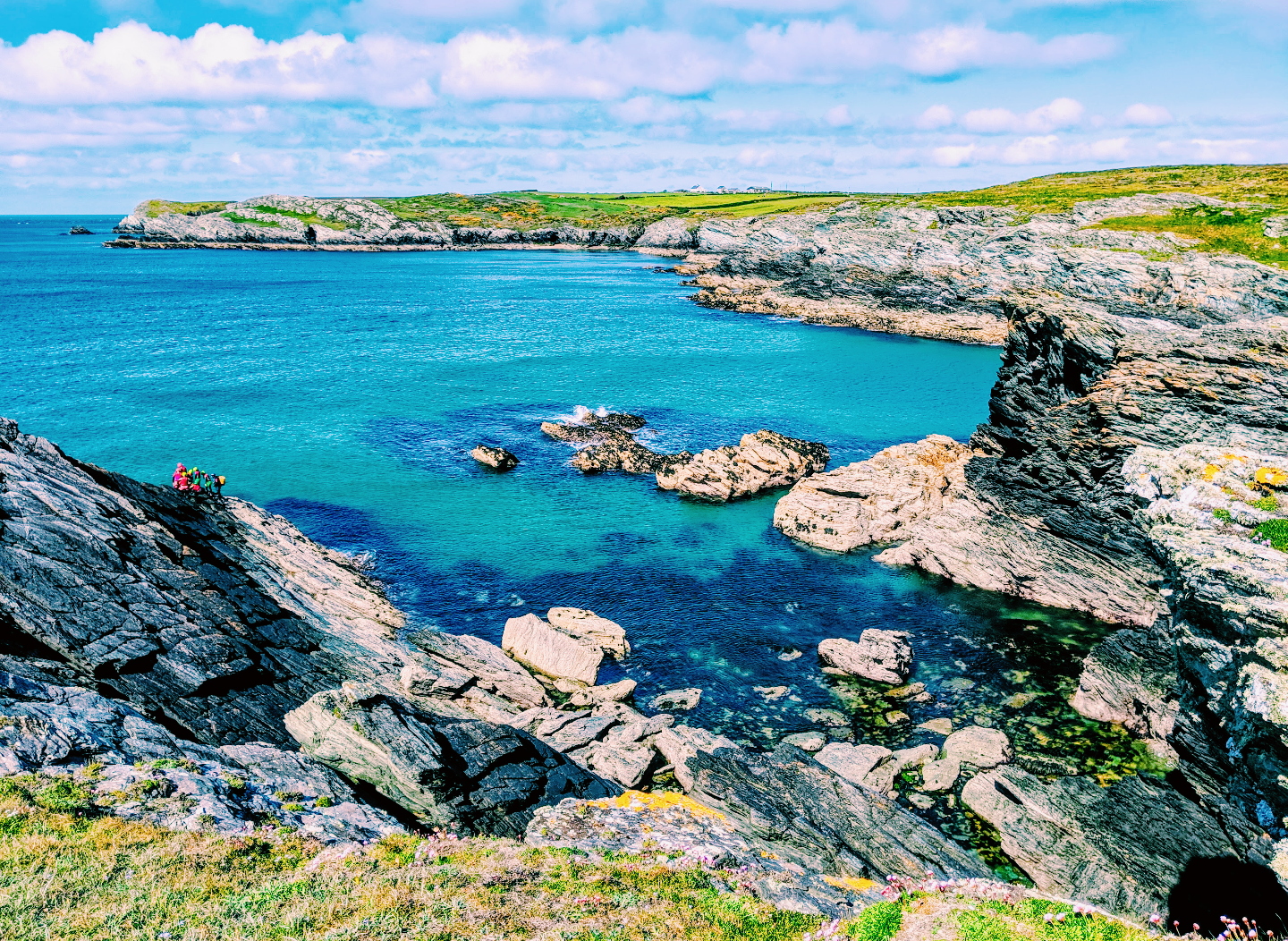I am truly blessed to have created a life surrounded by incredible women and I know everyone says that about their friends but mine aren’t just incredible in the normal, kind, loving and supportive ways. Mine are women who want to change the world, who speak up when others don’t. They are intelligent, humble and could probably break you in half like a twig. These women are women I look to for council, for inspiration and for courage.
My friend Sarah very kindly offended to write something for National Eating Disorder Awareness week. I started talking to Sarah via Instagram 3 years ago now, when I really struggled with my weight and appearance, I would write honestly on my blog about my struggles and crying. She was this incredible woman I had never met who despite me being super self-absorbed at the time was an incredible source of comfort and strength. Never in a hundred years being caught up in my own bubble of self-importance did I stop to think about the woman behind the insta name. Never did I ask myself why she cared so much or how she knew so much about my struggle. Luckily now I am proud to say she is one of my closet friends and a woman I look up to for her strength and her voice. Here is her incredible journey!
This week is National Eating Disorder Awareness (NEDA) week. This year’s theme is “come as you are” There are many faces of eating disorders (EDs), and they aren’t always what you might think. This year’s NEDA theme is about sharing the stories of people who don’t fit the stereotype of a person with ED, showcasing that you – and your experiences – need not fit the dominant narrative to be valid.
The experiences I share here fit well with this theme, as I was driven in part by my discomfort in being “too much”, and my recovery was not a beautiful tale of self-discovery and emotional labour. I often feel I have no right to speak about it, because my experience wasn’t the stereotype. But I feel now is a good time. As it says on the NEDA website: “so nedawareness week, come as you are, not as you think you should be.”
There is no archetype
I struggled with EDs for more than a decade. There are many reasons for developing an ED, but there are a few important things you should know:
1) It is not about weight. For some of us, it is about control. For others, it is about avoidance. For me, at first, it was about the feeling that I wanted to be left alone. I felt different, and I got a lot of attention for my differences. I wanted to disappear. The easiest way was to get smaller. It didn’t work. I still got a lot of attention for the wrong reasons. For all of us, it becomes habit and often identity.
2) Telling someone they are beautiful…or thin…or whatever… won’t help. I had a lot of people who felt that my belief in my attractiveness was the issue. I appreciate those people. But I wish they had known. Because of the above (i.e. it not being about weight), you can tell someone they are beautiful, but this is unlikely to have any effect. What they need from you will be different depending on the person, but it will require you to figure that out. It is not a beauty contest, and you are not the judge. Your words are powerful, but they shouldn’t be directed toward the person’s appearance.
3) The face of eating disorders is probably not what you think. I struggled first with anorexia, then moving on to other eating disorders and vacillating between them. In all of those iterations, I felt as much in common with morbidly obese, compulsive over eaters as I did with an emaciated anorexic person. In body they are different, but in mind there are many of the same mechanisms.
4) Recovery doesn’t have to be an inspirational tale of transformation and self-love. For me, it wasn’t spiritual self-help I needed or someone to teach me about self esteem. It was a slow, gradual, and winding process of recovery, remission, and recovering again.
When you don’t fit the mould
I first lost one-third of my body weight in a couple of months, and I was already on the low end of the BMI scale. Only a few people thought there was a problem, even when I reached the weight of a prepubescent child. There are no photos of me at that weight. Most people told me I looked great. I didn’t like the attention, so I gained weight – a bit more than I had lost in the first place. I still wasn’t overweight, but within a year of being at that all-time low, it flipped. I was called “super size Sarah” and was told that I would inevitably become morbidly obese. I was even asked, by someone I thought cared about me, if I wanted to go on a diet, so I could “get my weight under control”. What they don’t know is that this was in part about control already, and my control was impeccable. This experience made it crystal clear to me that you could control people’s perceptions of you by controlling what you looked like. It was a lesson that applied far beyond my physical appearance. I didn’t want to be treated for anorexia, so I ate and ate and ate until they told me the way I looked wasn’t anorexic. But they also told me it wasn’t okay. I knew that I went too far (I wanted to not be bothered, after all), so I lost weight again to stop the comments.
I reached a happy medium though obsessive exercise and calorie counting. For a decade I obsessed and cycled through binge/restrict cycles. I still thought about how to control it – how to be okay in the eyes of the people who were watching – every day. But I passed as a “normal” person. People stopped commenting one way or the other. Some people thought I was the picture of health. Many people thought I was confident.
Ultimately, no one paid attention to what was really happening. Some people did at the low points, but not after I gained weight again. Ultimately I found a weight at which I could be conscious but not obsessive, and I have been there ever since. But I still struggled. I struggled for many years. Yet the fact that I speak with confidence… the fact that I am no shrinking violet…that made everyone think it was okay. And it meant I ‘passed’ for the better part of a decade as a normal person. Someone who was immune to the pressures put upon women. We have an idea of what a person with an eating disorder looks like, and I did not fit that stereotype.
Confidence is not recovery
If you have managed to make it this far, even if you don’t have experience of this yourself, it still may be helpful to know this: if someone you love is in trouble, it may not be obvious. But a bit of close attention will reveal the signs. I also want you to know that the face of an eating disorder can be calm, composed, and confident. It can be at a normal weight, and it can be a functioning person. It is probably a face (or many faces) that you know. I also want you to know that there are many ways to help someone, some of which do not involve confrontation. Sometimes, you just need to tap into empathy and act on it. Other times, you just need to show love – the tough sort where you challenge them to make them a better person. You’ll probably need to be perceptive, and sometimes call them on their lies. Those of us who have eating disorders, we will lie. We are experts at sleight of hand. We will distract you from the problems. You can sit through meals with us for months and not realise what we’re doing. But you must pay attention and persist.
You don’t need to convince anyone they are thin and beautiful. That isn’t what this is about. You just need to be receptive to helping someone, and providing that help in a way that works for them. On their terms. If someone in your life is struggling, I can’t provide you with the answer, but I can provide you with advice and a testament that it isn’t all folly.
A different path to recovery
For me, the help I needed was not self-help books or striving to “fix” myself by going on some journey of self-discovery and digging up my past. I just needed to work every day to get better, try a lot of different things, stop doing things when they stopped helping, and recognise that it didn’t matter why I developed EDs in the first place – what mattered was that I moved forward. If you are struggling, I want you to know that full recovery is possible. Many people will tell you it is not, and that you will always be slightly neurotic about food. Other people will tell you their inspirational tales of metamorphosis, where they got to the root of their problem and emerged as a sassy, empowered human being. They will try to sell you something to “fix” you too. But you aren’t broken, and you don’t need to wait to get better until after you deal with all of life’s problems. You just first need to change your behaviour, and your brain will form new neural pathways. It’s not self-help, but it’s science. And for me, that was enough to keep me going. You might need something different than I did, and that’s perfectly okay too.
Life after recovery is not perfect. It is just life, and it needn’t be perfect to be good. I post a few photos because I think they are meaningful – the first is one where I had just started to lose weight. My running got faster, so I thought it was fine. The second is me after I had gained a lot of weight. Most of it was in my face, which prompted many hurtful comments about my appearance. The third is before a half marathon because running is a lot more fun when you do it because you like it and not as punishment. The last is of me lifting weights. Some people claim strength training “saved them” because it made them focus on being strong, not skinny. It didn’t save me. I lifted weights when I was anorexic. But they serve as a reminder of how far I have come. I can lift the anorexic Sarah over my head now. I can squat with 1.5 anorexic Sarah’s on my back. I can lift 2.5 anorexic Sarah’s off the ground. I couldn’t have done that when I was trying to be less. I used to worry that I was too much (too loud, too opinionated, too snarky, too sceptical, too stuck inside my head), and it took me a long time to realise that getting smaller wouldn’t change those things. So slowly I’ve come to focus on doing more, even if it means taking up more space. People have never stopped having an opinion on how I should look, but at some point, their opinion just stopped mattering. Be more, not less.
My inbox is always open, and I will always strive to normalise the face of Eating Disorders. This is my story, and it is not rare. Anorexia is the most fatal mental condition. It could have ended very differently for me – and very badly – but because of persistence and some very special people, it did not. I hope you don’t have to do the same for someone else, but if you do, there are resources to help. https://www.nationaleatingdisorders.org/







